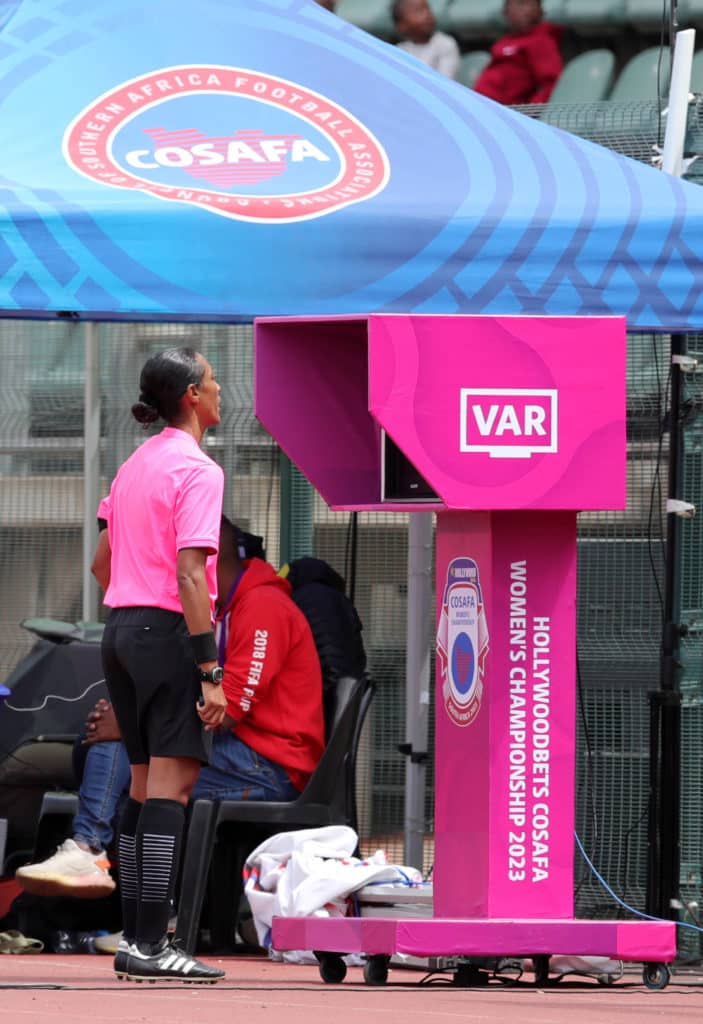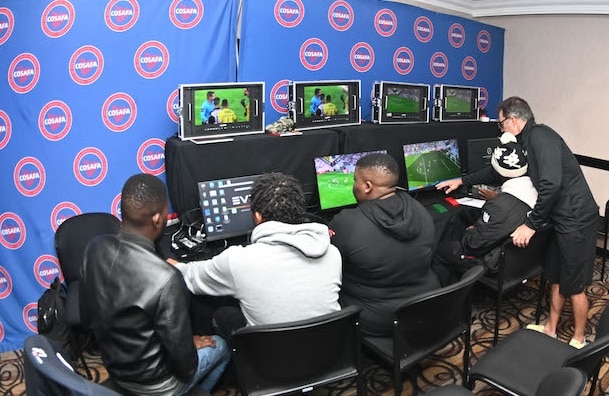Without the Video Assistant Referee (VAR) technology to automate and improve football decision-making, Africa faces being left behind while the world plays a different game.
Africa faces being left behind the rest of the world if the slow implementation of the Video Assistant Referee (VAR) continues at the same slow pace, which will be bad news not only for the integrity of football, but also the continent’s match officials. That is the view of Council of Southern Africa Football Associations (COSAFA) Referees Manager Felix Tangawarima after the organization recently introduced VAR for their Women’s Championship and held a workshop for referees in how to most effectively use the system.
Tangawarima is well-placed to comment; he is a Confederation of African Football (CAF) and FIFA Instructor and very much at the forefront of modern trends in officiating.
He says VAR is becoming the norm at FIFA events at all levels – male and female – and if the continent’s top officials want to be selected for these assignments, they will need to have the necessary training and experience, something that is currently lacking.
“VAR is there within the laws of the game and it is not going anywhere, so it is important for us to embrace it,” Tangawarima tells FORBES AFRICA. “In the future, if you want to go to a World Cup (as a match official), you will have to have practiced with VAR.
Loading...
“FIFA will come any day and say every game will be VAR, so we urge our member associations at COSAFA to get ready for that. FIFA are looking for licensed officials and we don’t want our referees to be left out.”
The reason why the uptake of VAR has been so slow in Africa is well-documented. It is hugely expensive to buy the equipment and it has to be fixed at stadiums and cannot be easily moved around.
That is a problem for so many clubs on the continent who do not own their own stadiums, but rent from municipalities.

Who is therefore responsible for the safe-keeping of this expensive equipment?
In terms of the South African Premier Soccer League, all the equipment is already in the country and waiting to be used, but the league has reportedly balked at the reported R40-million ($2.18 million) per season it will cost to run.
But a solution will have to be found or Africa faces being left in the dark ages in football terms, while the rest of the world plays a different game.
COSAFA hope their recent successful pilot project will show their own 14 member associations across southern Africa the way forward, and also the rest of the continent too.
“Our objective is to have as many referees registered and ready as possible,” Tangawarima says. “In the future we want to have VAR used in every game from the group stages of our tournaments. But the first step is to help the referees get licensed, so we must intensify the teaching they need and train as many as we can. The support we have had, which includes from FIFA and CAF, to help us, has been fantastic.
“COSAFA will be one of the first regions to implement VAR for its tournaments, though there are only some North African countries who have it already. So this is very exciting for us and the referees.”
COSAFA implemented the system fully from the semifinals onwards at the Women’s Championship in October, though behind-the-scenes, referees used the system as a training session.
They operated it as if it was live as part of their certification.
“For a referee to be licensed, they must have had 25 hours of training,” Tangawarima says. “We have done a five-day preparatory course, simply because a number of the referees were encountering VAR for the first time. The course includes theory, and of course practical.
“We tasked the project leader from FIFA (Mike van der Roest) with taking the referees through the theory part of it. We split the referees into two groups, the one on the field, the other in the booth using the VAR.
“Everyone is rallying behind this project, which will change the face of COSAFA.”
Loading...
